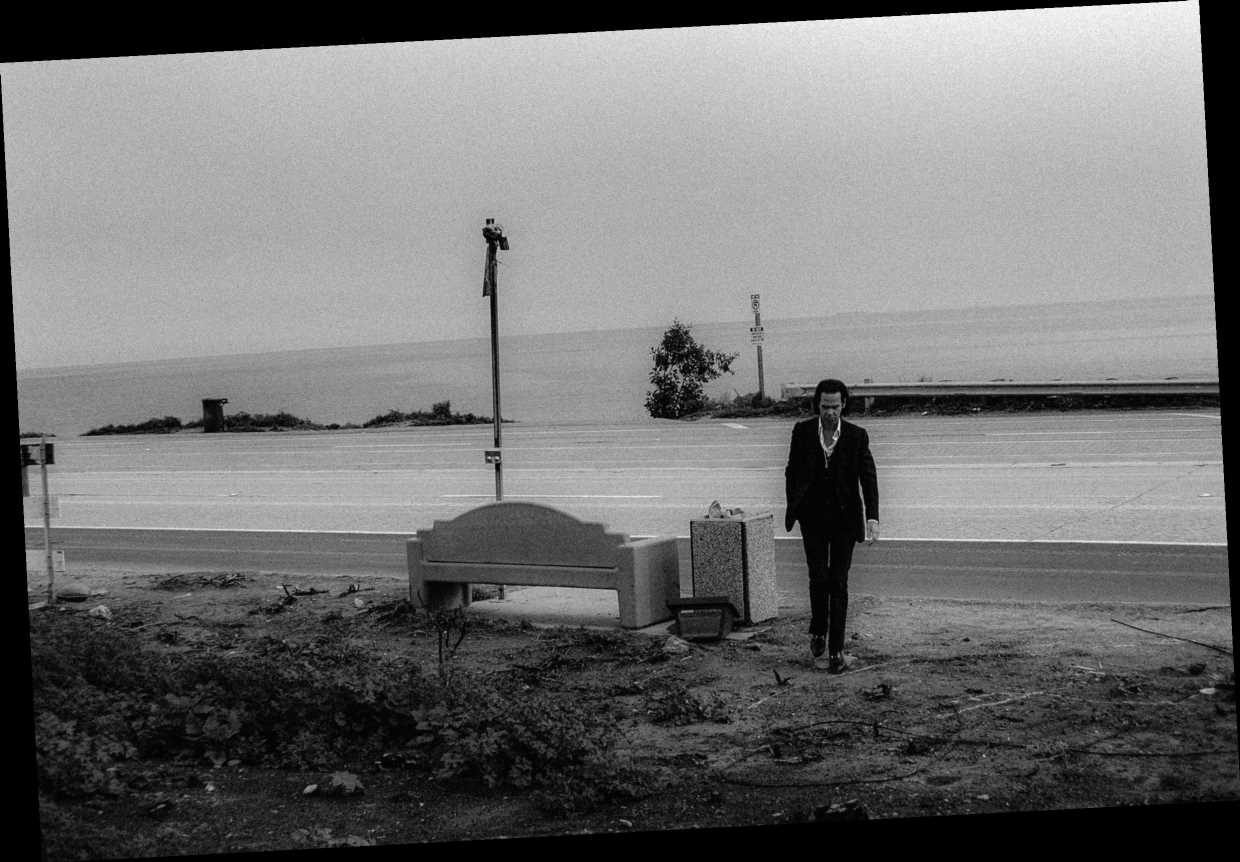It’s a rare thing to see an artist’s worldview change overnight. For decades, Nick Cave has been goth rock’s hyperliterate poet laureate, famous for his intricately molded stories about rogues and “badlanders” all in the throes of anguish. (He has also always written beautiful love songs.) But where writing about doom and despair once seemed like a lark — see “Stagger Lee,” John Finn’s Wife,” Murder Ballads, etc. — the freak death of his 15-year-old son Arthur four years ago rightfully shook him to his core. His last album, 2016’s Skeleton Key, was recorded after Arthur’s death but mostly written before it. His latest, however, seems like a broader, and altogether more stunning reaction to losing his son.
He split the album, which bears the self-explanatory title Ghosteen, into two acts. He is avoiding the standard press cycle, opting for audience Q&As lately, so here is all he has said about the record so far: “The songs on the first album are the children. The songs on the second album are their parents. Ghosteen is a migrating spirit.” It’s a holistic portrait of a father grieving, and while the songs are often heartbreaking — he dwells on and repeats phrases like “It’s a long way to find peace of mind” on the closing track “Hollywood,” on the parents’ half — there is also a strange hope within the songs.
Perhaps the most surprising aspect of Ghosteen is the frankness of the lyrics. Although Cave still couches many of the songs in his own parables, it’s easy to see the artist through his work. The opening track, “Spinning Song,” is ostensibly about “the King of Rock & Roll,” but it’s more likely that the repeated lyrics “And I love you” and “Peace will come in time” are more important than his umpteenth retelling of Elvis Presley’s nativity. “Ghosteen Speaks,” a track on the children’s half of the record and ostensibly the concept album’s cornerstone, isn’t so much a monologue by the titular character so much as the character (some kind of superhero?) “Ghosteen” saying, “I am beside you/Look for me.” There are several songs about being “by your side” and many more about horses running free (freedom, and trying to attach oneself to it, is always present). On “Fireflies,” from the parents’ half of the record, he sings, “I am here and you are where you are.”
“Sun Forest,” in the first half, is Cave’s vision of “a spiral of children [that] climb up to the sun, waving goodbye to you.” The 14-minute “Hollywood” contains the Buddhist story Kisa Gotami, whose baby died, and she brings it from house to house in her village asking what to do; his falsetto voice breaks up with sorrow as he sings it. The album cover looks like Heaven or the Garden of Eden. It’s all still as dark and morose as his past works, but there’s an undeniable reality to it all that makes it gut-wrenching.
What makes it all the heavier is the work of his backing group, the Bad Seeds. Most of the songs are draped in thick, New Age-y synthesizer; it’s ether in action, ether in practice. Thomas Wylder is credited as the drummer, but damned if you’ll hear him much in the mix. It’s more likely you’ll hear Jim Sclavunos’ percussion or Martyn Casey’s throbbing bass keeping the rhythm going. Cave’s main collaborator of recent years, Dirty Three violinist Warren Ellis, occasionally takes the music and creates looped samples out of it, adding further to Cave’s imagery of being caught in limbo.
But while hope was in short supply on Skeleton Tree, where the songs were so sad it was almost like a dare to listen to it, a unique sort of optimism pierces through the grief from time to time on Ghosteen. It’s in the chords that Cave and the Bad Seeds play (especially the chorus of “Waiting for You”) and it’s in the words of songs like “Galleon Ship” in which sings, “For we are not alone it seems/[there are] so many riders in the sky” over glistening synths. “Ghosteen,” which opens the parents’ part of the record, begins with the words, “The world is beautiful.” And there’s also a certain peace in hearing Cave sing “Everybody’s losing someone,” in “Hollywood,” even if it just means he’s coming to terms with his own grief. If anything, the real concept behind Ghosteen is that Nick Cave is not broken. He has merely changed. He may feel shattered, but he is still writing and finding meaning in his music.
Ghosteen is a masterpiece of melancholy. You mourn right along with him and hope he finds solace.
Source: Read Full Article
